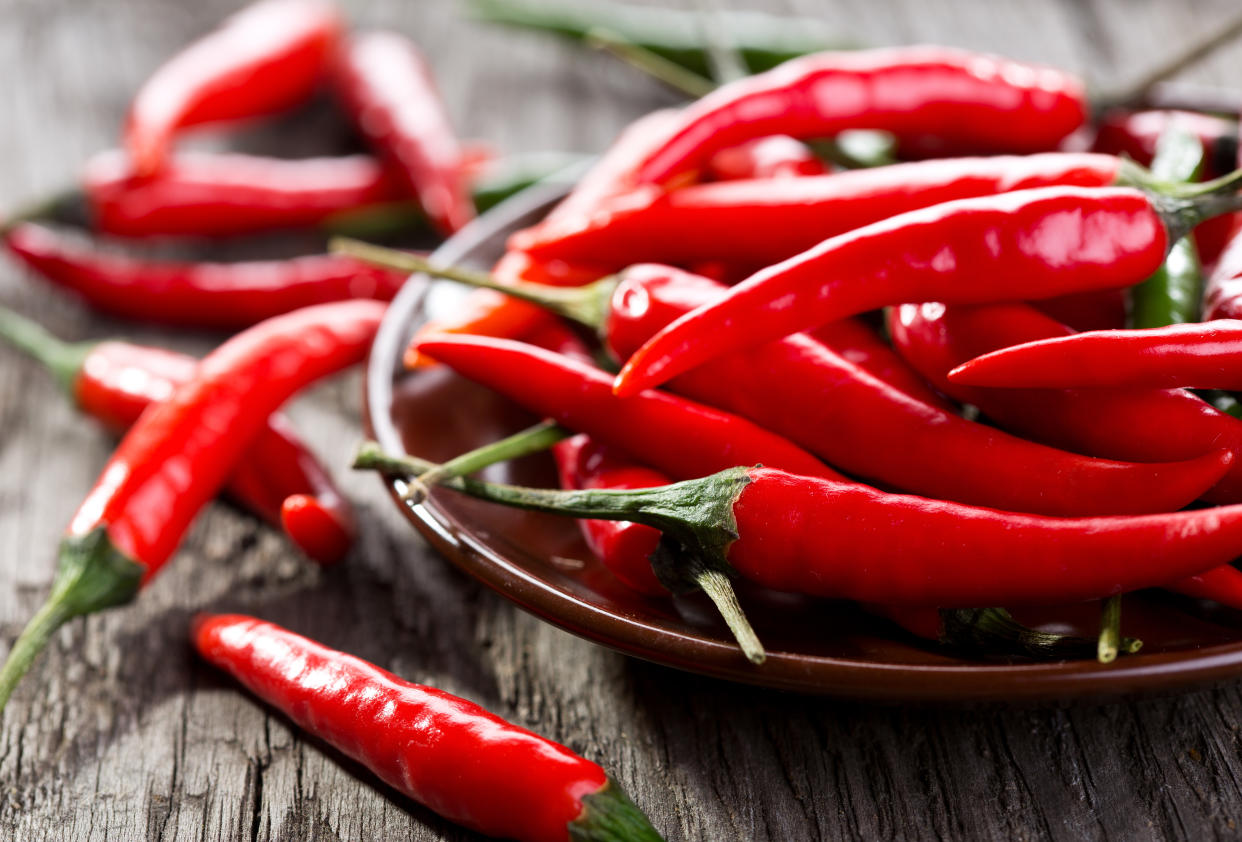Eating chillis could ward off an early death, study suggests

Giving your food a hint of spice could add years to your life, research suggests.
Chilli peppers’ signature kick comes from the chemical compound capsaicin, which has also been shown to have anti-inflammatory, antioxidant and even anti-cancer properties.
To better understand how the fiery flavour enhancer may boost our health, scientists from the Cleveland Clinic’s Heart, Vascular & Thoracic Institute analysed the chilli intake of more than 570,000 people across four studies.
Results suggest that compared to people who rarely or never ate chillis, those who had them as a regular part of their diet were 25% less likely to die from any cause over their study period.
Read more: Coffee may help OCD patients control urge to wash their hands
They were also 26% and 23% less likely to die from a heart-related condition or cancer, respectively.

“We were surprised to find in these previously published studies, regular consumption of chilli pepper was associated with an overall risk-reduction of all cause, CVD [cardiovascular disease] and cancer mortality,” said study author Dr Bo Xu.
“It highlights dietary factors may play an important role in overall health.”
The scientists analysed the health and dietary records of hundreds of thousands of people who live in the US, Italy, China or Iran.
Read more: Eating soy may help ward off dementia in those with specific gut bacteria
The results – presented at the American Heart Association’s Scientific Sessions 2020 – found eating chillis more regularly than “rarely” was linked to a reduced risk of death by any cause over that particular study’s duration.
It was also associated with a lower risk of dying from cancer or heart disease specifically.
Eating chillis does not, however, appear to ward off a cerebrovascular event, like a stroke or embolism.
Watch: What makes spicy food spicy?
While previous research suggests the spicy ingredient has potent health properties, exactly how chillis may boost wellbeing is unclear.
“The exact reasons and mechanisms that might explain our findings are currently unknown,” said Dr Xu.
“Therefore, it is impossible to conclusively say that eating more chilli pepper can prolong life and reduce deaths, especially from cardiovascular factors or cancer.
“More research, especially evidence from randomised controlled studies, is needed to confirm these preliminary findings.”
Read more: Honey should be the go-to for easing coughs
The scientists noted the amount of chilli peppers the participants consumed varied between the four studies, making it difficult to conclude an optimal intake.
Not all the studies also necessarily took into account other factors that could influence a person’s risk of an early death or ill health, like smoking or exercise levels, added the team.
Watch: World’s hottest peppers grow under snow in Serbia



